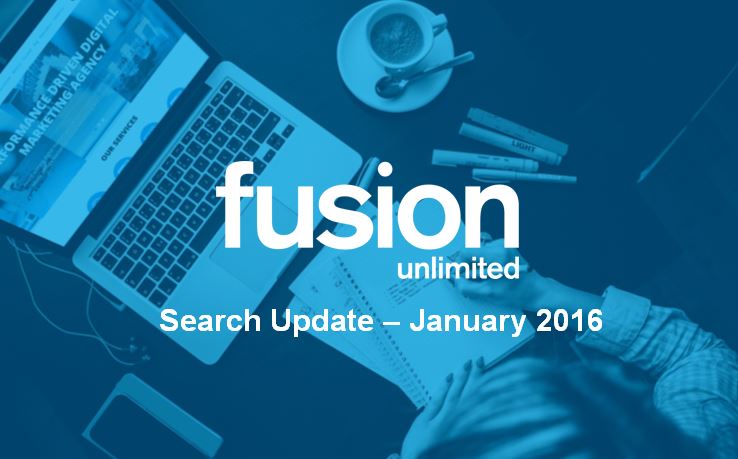Google core search algorithm updated
In mid January Google confirmed that an update to it’s core ranking algorithm had taken place.

The news came after a number of webmasters reported significant ranking fluctuations, leading many to believe that the impending Penguin update was to blame.
On top of this, Google stated that it’s Panda algorithm, which is responsible for detecting poor quality or “spammy” content, is now incorporated within the it’s core search algorithm. However, it’s been made clear that Panda wasn’t refreshed within the recent core update.
Whilst details of the exact nature of the update are still thin on the ground, many of the ranking drops reported by webmasters occurred on sites that had thin or poor quality content; publisher websites were particularly hard hit.
With this in mind, and with the Penguin update set to drop soon, webmasters should be checking rankings regularly.
Title tags not a “primary ranking factor”
In a Google Q&A session last month, John Mueller stated that having title tags is not a “primary ranking factor” for a page.
Mueller’s initial statement was that title tags are not a “critical ranking factor”, which led many to assume that tags are not a ranking factor at all.

However, in a clarification Mueller said that “titles are important! They are important for SEO. They are used as a ranking factor”, but that specifically targeting a large number of keywords in a title tag is likely to have negligible benefit for the page. “It’s not worthwhile filling [title tags ] with keywords” as this won’t help a page rank, and can be bad for user experience.
Instead, Mueller stated that the main ranking signal on a page is the content, saying that “the actual content on the page” is a critical ranking signal, and that if a page has good content it could in theory rank without a title tag. Whilst this doesn’t mean that title tags have no importance, it’s perhaps a sign for webmasters to rethink how they’re using them.
Google updates webmaster guidelines

Last month Google carried out quiet changes to it’s webmaster guidelines, the best practice document that acts as a “do’s and don’t’s” list for webmasters.
consisted of clarifications or minor edits to existing points, the new changes contain entirely new guidelines, with the removal of certain guidelines.
One of the most significant new additions is the recommendation that sites use HTTPS, with Google saying “If possible, secure your site’s connections with HTTPS”. Whilst this has been something Google has informally pushed for a while, the update makes having HTTPS a best practice requirement.
The updates now also include optimisation for mobile as an official guidelines, stating “Design your site for all device types and sizes, including desktops, tablets, and smartphones.”
Other additions relate to accessibility, and the use of content containing tabs, with Google saying that any important content that might be hidden by a tab should be made “visible by default”.
Outbound links not a ranking factor

In a recent Google hangout, Google’s John Mueller cleared up the question whether linking out externally to high quality websites provides any benefit.
When asked if Google considers external links to other sites as a ranking factor, Mueller stated “external links to other sites, so links from your site to other people’s sites isn’t specifically a ranking factor”.
Whilst not commonly accepted as a ranking factor, external linking has been viewed by some SEO’s as something that could bring a small benefit to the linking site, in part due to the fact that inbound links do have a ranking benefit.
However, Mueller says that the only potential benefit of external links has is that they can “bring value to your content”.
Whilst this has been stated by Google before, this is perhaps the clearest answer we’ve had on the matter so far.
by Joshua Carter






